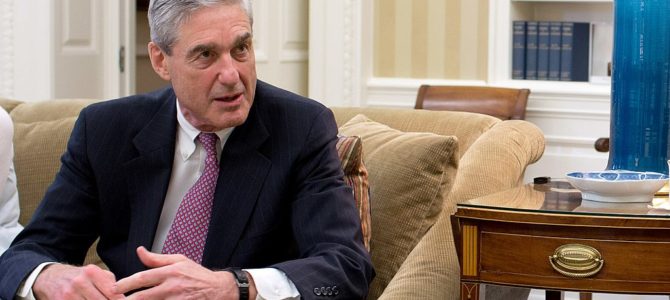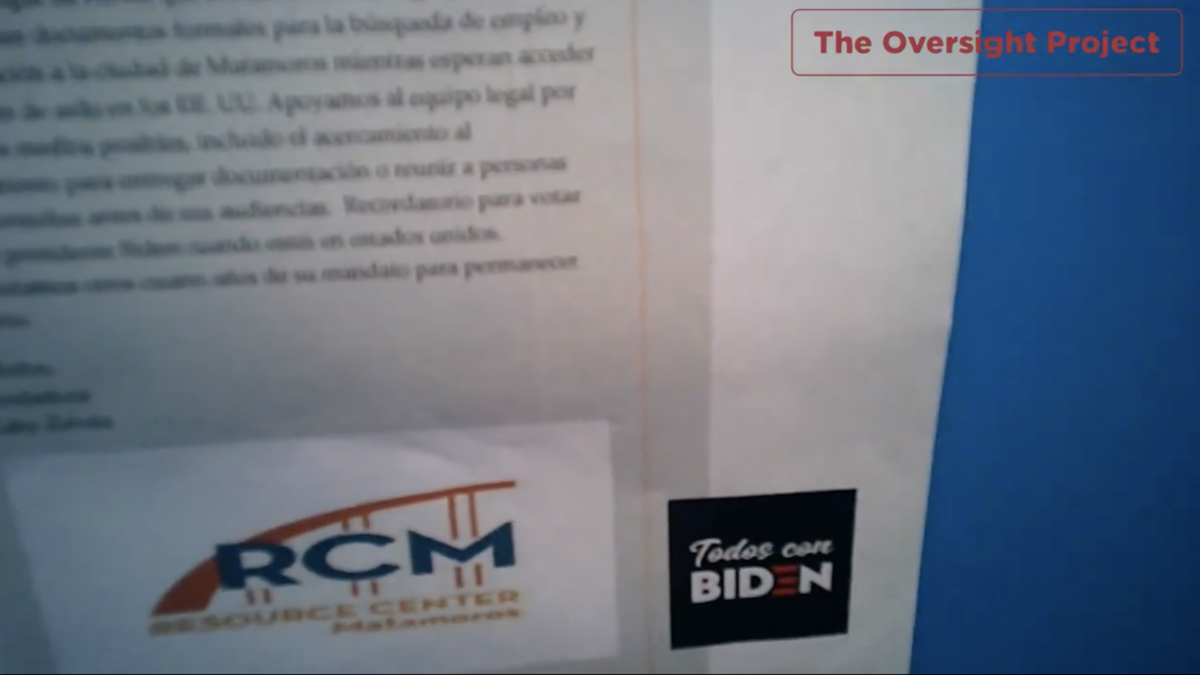
A pattern running through coverage of the “Trump collusion” investigation over the last year or so goes something like this:
1) Donald Trump does or says anything related to the investigation or the presidency.
2) Smart people on cable news shows explain how suspicious this behavior is for someone who’s under investigation for collusion and obstruction of justice, and imply it’s yet another sign of his guilt.
For the past year or so, Trump’s actions have been measured against the absolute, no-brainer certainty that he is so deeply compromised by collusive behavior with Russia that, as former Director of National Intelligence James Clapper put it, he is now being run as an asset of Russian President Vladimir Putin’s Russian intelligence services.
Clapper’s opinion is shared and supported by any number of Democratic officials and cable news guests. Perhaps chief amongst them is the ubiquitous prime-time trio of representatives Adam Schiff, Eric Swalwell, and Ted Lieu. While Schiff routinely apprises us that the circumstantial evidence suggesting Trump’s and his campaign’s complicity in collusion is “pretty d-mning,” Lieu took it to another level, calling for a shutdown of all votes on Trump agenda items due to the “cloud of treason” hanging over the president.
Swalwell has proven a reliable advocate for a guilty verdict, consistently backing up his colleagues with references to classified confirmation and nefarious circumstances, which he delivers in a manner that can only be described as passionately vague. Taken together with the general media sentiment that it’s simply a matter of time until the real evidence of collusion and conspiracy is released in the final report from special counsel Robert Mueller, one would be forgiven for being hyper-vigilant for manifestations of President Trump’s “guilty knowledge” in his words and actions.
What Could Also Explain Trump’s Behavior
Trump is a suspect, after all, which naturally engenders suspicion. Prosecutors and detectives go to great lengths to monitor suspects for signs of guilt. They study their life patterns, correspondence, and statements for irregular and unusual behavior. Their efforts are often rewarded with information or observations that lead to the suspect’s arrest and conviction.
If you ask Schiff, Swalwell, and Lieu, they’ll tell you their observations of Trump’s behavior support their suspicion that he’s guilty of…something. Maybe collusion, possibly conspiracy, most likely obstruction of justice. But something. What else could explain his provocative actions and statements related to the investigation?
Another thing could explain his actions, though: What if he’s innocent?
Consider it for a moment. What if Donald Trump had nothing whatsoever to do with any nefarious activities related to collusion, conspiracy, or cooperation with Russia? What if Trump was and is unaware whether anyone in his campaign engaged in any of these activities? If that were the case—indulge me—how would Trump’s behavior stack up against that of any other falsely accused suspect?
He takes every opportunity to declare his innocence. Check. He dismisses reports of “evidence” suggesting his guilt. Check. He dismisses media questions implying his guilt. Check. He lashes out at those who report or publish stories suggesting his guilt. Check. He takes actions irrespective of whether they advance the notion of his guilt. Check.
All of these actions, stripped of political or emotional bias, are characteristic of an individual who believes himself to be innocent. This is true if you hate Trump, it’s true if you love Trump, and it’s true if you don’t care either way. Or look at it another way: think about how you’d behave if you were A) innocent, and B) in Trump’s shoes. Now take another look at his behavior.
Innocent Until Proven Guilty
This is not to say that Trump is innocent. Nobody outside of the Mueller team knows the answer to that question at the moment, and most will accept whatever conclusion Mueller announces at the end of his investigation. What it does suggest, though, is that an objective observer would likely agree that Trump is acting like an innocent man fighting against the public perception of his guilt, and those who promote and amplify that perception. Whether he’s “acting” like an innocent man remains to be seen, but will be revealed in due time.
When Trump fired FBI Director James Comey, many speculated it was an overt attempt to undermine the investigation Comey was overseeing on Trump-Russia collusion. To those assuming Trump’s guilt, this fit right in with their expectation of how a guilty person would handle Comey. That speculation turned to collective certainty when Trump told Lester Holt of NBC News: “And in fact, when I decided to just do it, I said to myself — I said, you know, this Russia thing with Trump and Russia is a made-up story. It’s an excuse by the Democrats for having lost an election that they should’ve won.”
Networks, newspapers, pundits, and politicians immediately declared this a presidential gaffe of epic proportions. “Here he is, admitting to Lester Holt he fired the director of the FBI because of the Russia investigation.” Yet they failed, and continue to fail, to note or consider the context in which Trump issued that seemingly incriminating statement.
While that statement has become the touchstone for those arguing the obstruction case against Trump, an objective review of the entire interview provides equally compelling context to those willing to entertain the notion that Trump is innocent. Immediately before making the statement above, Trump said, “But regardless of recommendation, I was going to fire Comey, knowing there was no good time to do it.”
Is it a sign of innocence or guilt that the suspect is aware his action would be viewed as suspicious regardless of if or when he did it, and he decided to do it anyway? Is it possible that the context of his “Russia thing” quote was, “I know everyone’s going to jump up and down and scream ‘Russia obstruction,’ but I also know I had nothing to do with Russia so I just decided to do it”?
Let’s Look at the Rest of the Interview
Later in the interview, Trump said: “But I said to myself I might even lengthen out the investigation, but I have to do the right thing for the American people. He’s the wrong man for that position.” Later still, asked by Holt whether he was sending a message to the eventual FBI director to “back off” the investigation, Trump replied, “No, I’m not doing that. I think we have to get back to work. But I want to find out, I want to get to the bottom – if Russia hacked, if Russia did anything having to do with our election, I want to know about it. “
Finally, asked if he expected the next director to continue the investigation, he responded, “Oh yeah, sure, I expect that.” If we are accepting the now-infamous “this Russia thing” statement as a dispositive pull-quote to deploy any time someone suggests Trump’s innocence, what are we to do with the rest of these quotes? The one that tells us Trump believed firing Comey would prolong the investigation—the exact opposite of the popular interpretation of the “Russia thing” quote? The one where Trump says he fully expects the investigation to continue, with or without Comey? Or the one where he says he wants to get to the bottom of the Russian hacking during the election?
Are we to discount everything else he said in that interview for the express purpose of preserving our interpretation of the one quote we’ve chosen to highlight, albeit without context? If you believe he’s guilty, of course you are. It only supports your assumption if taken alone. But if you assume he’s innocent, the context tells a different story, which is why most have probably never seen it before.
If He’s Innocent, He Knows Mueller Knows It
The Schiffs, Swalwells, and Lieus of the world will tell you that the “Russia thing” quote stands alone. It doesn’t, unless your conviction that Trump is complicit in collusion or obstruction is such that any evidence to the contrary must be discounted or ignored.
A couple nights ago, while discussing another Trump recitation of his familiar “There is no collusion” mantra, a CNN panel guest argued that “Trump has no idea what Mueller knows” about Trump’s alleged collusion, “and that’s probably the reason he’s trying to get ahead of it.”
If you believe Trump is guilty, this would be a completely natural conclusion to draw. But if you allow yourself to accept the possibility that he may be innocent, it would likely occur to you that an innocent man would have an idea what Mueller knows, and behave accordingly. And maybe that explains everything.
Lester Holt’s name has been corrected in this article.









